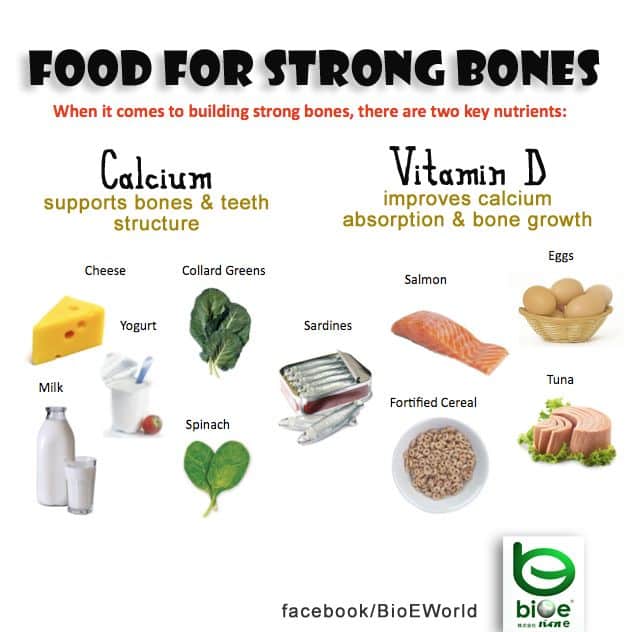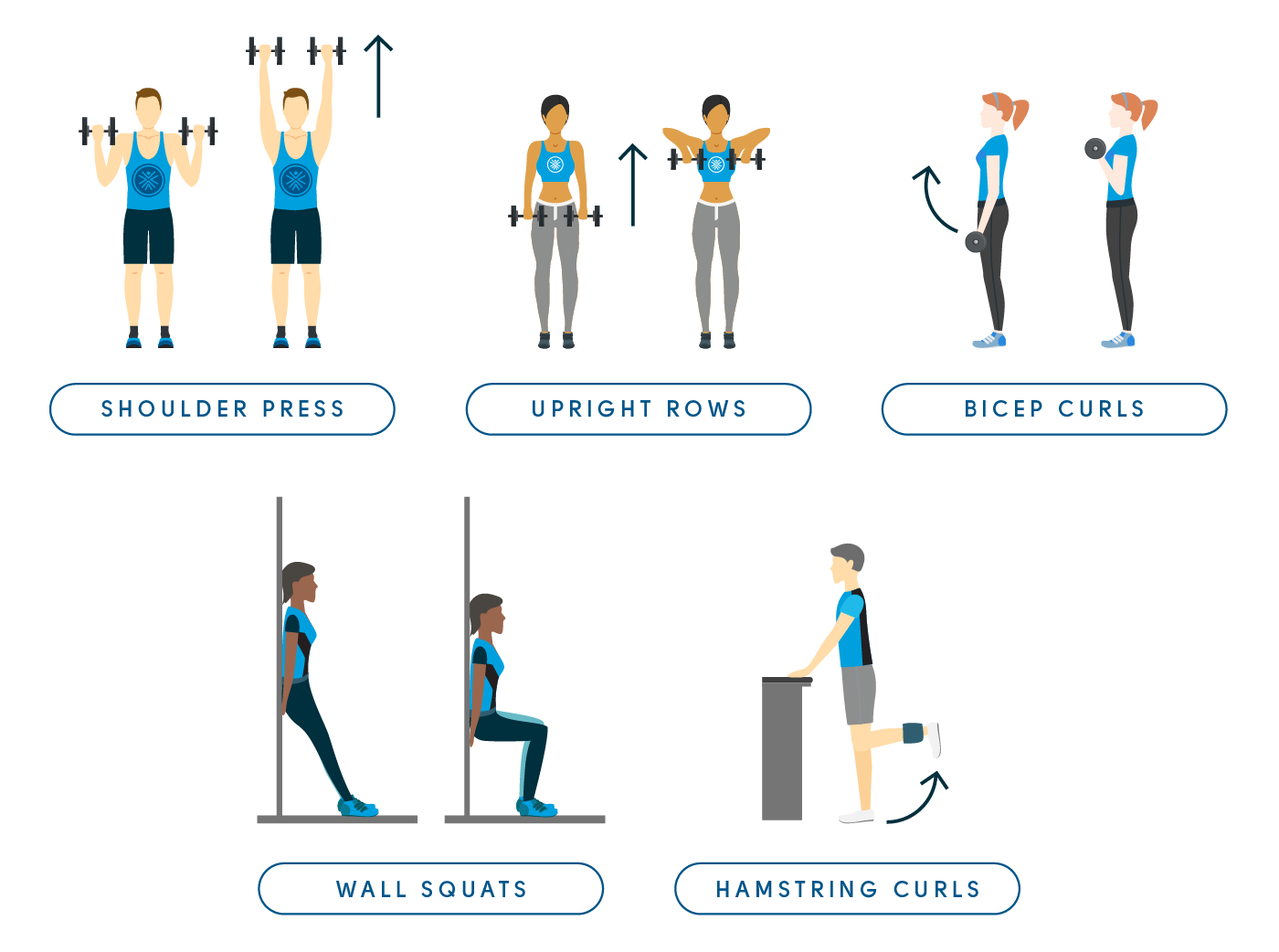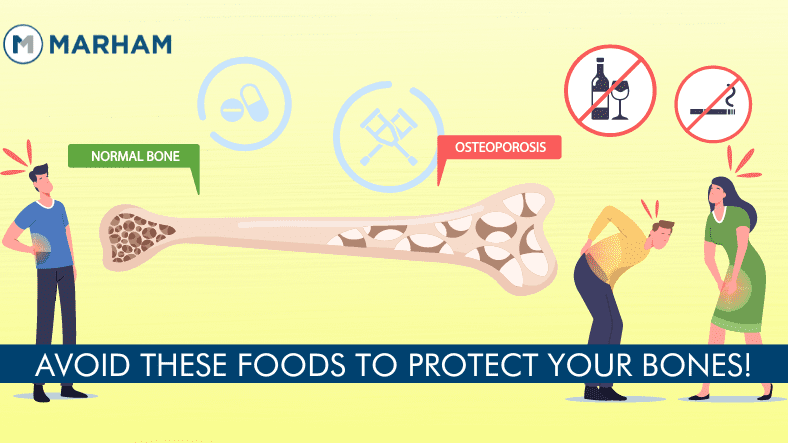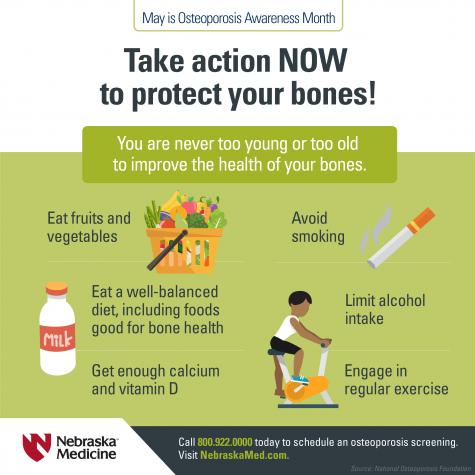Building Strong Bones: The Power of Nutrition
Our bones are the foundation that supports our bodies and enables us to move, walk, and perform daily activities. As we age, bone health becomes increasingly important to maintain an active and independent lifestyle. Conditions like osteoporosis, characterized by weakened and fragile bones, can significantly impact quality of life.
Osteoporosis is a common bone disease that affects millions of people worldwide. According to the International Osteoporosis Foundation (IOF), it is estimated that over 200 million people are affected by osteoporosis globally.Osteoporosis is more prevalent in women, especially after menopause when estrogen levels decrease, leading to bone loss. Women are at a higher risk of osteoporosis-related fractures, particularly in the hip, spine, and wrist. The IOF reports that worldwide, one in three women over the age of 50 and one in five men over the age of 50 will experience osteoporotic fractures in their lifetime.
Fortunately, there are proactive steps we can take to promote bone health, and one of the most significant factors is nutrition. In this blog, we will explore the essential nutrients and foods that play a crucial role in building and maintaining strong bones, helping you pave the way for a healthier future.
Our bones are not static structures; they undergo continuous remodeling throughout life. Bone remodeling involves a delicate balance between bone formation and resorption, ensuring bone strength and integrity. Bone remodeling involves two essential phases: bone formation and bone resorption. Osteoblasts are specialized cells responsible for bone formation. They secrete collagen and other proteins, creating the framework for new bone. As the bone matrix forms, minerals, primarily calcium and phosphorus, are deposited, giving bones their strength and hardness.
On the other hand, osteoclasts are cells responsible for bone resorption. They break down old or damaged bone tissue, releasing calcium and other minerals into the bloodstream for use elsewhere in the body. This process is essential for maintaining calcium balance, repairing micro-damage to bones, and reshaping bones in response to mechanical stresses.
Bone remodeling is most active during childhood and adolescence, supporting the growth and development of bones. By early adulthood, around the age of 30, most individuals reach their peak bone mass, which is the highest bone density and strength attained in their lifetime. Peak bone mass is influenced by genetics, physical activity, and nutrition during childhood and adolescence.
As we age, bone resorption may gradually outpace bone formation, resulting in a net loss of bone mass. This natural decline in bone density is a normal part of aging and typically accelerates after menopause in women due to decreased estrogen levels. However, lifestyle factors, such as a lack of physical activity and poor nutrition, can contribute to more rapid bone loss, increasing the risk of osteoporosis and fractures.
Calcium
Calcium is the cornerstone of bone health, making up around 99% of our body's mineral content. It plays a vital role in bone formation, structure, and strength. When dietary calcium intake is insufficient, the body draws calcium from bones, weakening them over time. To maintain strong bones, include calcium-rich foods in your diet such as dairy products (milk, yogurt, cheese), leafy greens (kale, broccoli, bok choy), fortified plant-based milk, and almonds. A study published in the American Journal of Clinical Nutrition found that increased calcium intake positively impacts bone mineral density and may reduce the risk of fractures.
Vitamin D
Vitamin D is essential for calcium absorption, ensuring that the calcium we consume is properly utilized for bone health. Our bodies can synthesize vitamin D when exposed to sunlight, making it the "sunshine vitamin." Foods rich in vitamin D include fatty fish (salmon, mackerel, sardines), egg yolks, fortified dairy products, and some fortified plant-based foods. A review published in the Journal of Bone and Mineral Research emphasizes the importance of vitamin D in promoting bone health, reducing the risk of falls, and preventing fractures.
Magnesium
Magnesium is a lesser-known but equally vital mineral for bone health. It is involved in bone mineralization and influences the activity of osteoblasts (cells responsible for bone formation). Good dietary sources of magnesium include nuts (almonds, cashews), seeds (pumpkin, sunflower), whole grains (brown rice, quinoa), and leafy greens (spinach, Swiss chard).
A study published in the Journal of the American College of Nutrition suggests that adequate magnesium intake is associated with higher bone mineral density and a reduced risk of osteoporosis.
Vitamin K
Vitamin K is essential for the synthesis of bone proteins and plays a role in bone mineralization. It also helps regulate calcium deposition in bones. Leafy greens (kale, collard greens, spinach), broccoli, Brussels sprouts, and fermented foods (natto) are excellent sources of vitamin K.
Phosphorus
Phosphorus is another mineral vital for bone health, working alongside calcium to form hydroxyapatite, the primary mineral in bone. Foods rich in phosphorus include fish, poultry, dairy products, legumes, and nuts. A study in the American Journal of Clinical Nutrition suggests that phosphorus intake positively influences bone mineral density and bone health.
Beyond Nutrients: Other Factors for Bone Health
While nutrition is a cornerstone of bone health, other
factors play a role in maintaining strong bones throughout life.
Physical Activity
Weight-bearing exercises, resistance training, and activities that put stress on bones are crucial for promoting bone density and strength. Engaging in regular physical activity helps stimulate bone remodeling and improves overall bone health.
Lifestyle Choices
Avoiding smoking and excessive alcohol consumption is essential for preserving bone density and preventing bone loss. Smoking interferes with calcium absorption, while excessive alcohol intake can negatively impact bone formation and increase the risk of fractures.
Hormonal Changes
For women, hormonal changes during menopause can lead to a
decline in estrogen levels, which may accelerate bone loss. Prioritizing
bone-healthy nutrition and lifestyle choices can help mitigate this effect.
The Role of Nutrition Throughout Life
Childhood and Adolescence
Nutrition during childhood and adolescence is crucial for
optimal bone development and growth. Calcium-rich foods, vitamin D, and
magnesium are especially important during these formative years.
Adulthood
As adults, it's essential to maintain bone health through a
balanced diet that includes a variety of bone-supporting nutrients. Regular
physical activity and avoiding harmful habits also contribute to strong bones.
Senior Years
In older adults, maintaining bone density becomes increasingly
important. Adequate intake of calcium, vitamin D, and other bone-nourishing
nutrients can help reduce the risk of fractures and osteoporosis.
Putting It All Together: A Bone-Healthy Diet
To ensure your diet supports bone health, focus on a well-balanced meal plan that includes a variety of calcium-rich foods, vitamin D sources, magnesium, and other essential nutrients. Aim for a diet abundant in fruits, vegetables, whole grains, lean proteins, and healthy fats to provide your body with all the nutrients it needs for strong bones.
Building strong bones is a lifelong process that requires a combination of factors, with nutrition playing a central role. By incorporating bone-supporting nutrients into your diet and adopting a bone-healthy lifestyle, you can strengthen your bones and improve your overall well-being. Remember, investing in bone health today will lead to a stronger and more resilient future.






:max_bytes(150000):strip_icc()/foods-high-in-vitamin-k-5114127-FINAL-2c0783a2c2c643988571c6010f352ac7.png)





Comments
Post a Comment